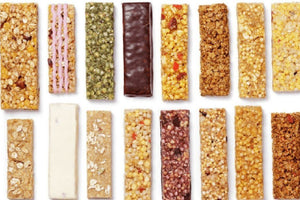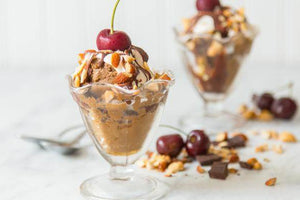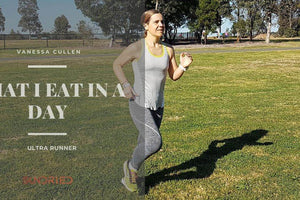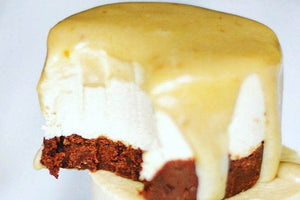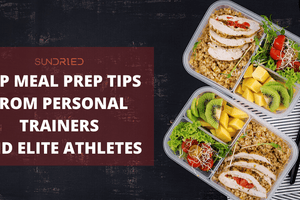
If you're starting to ramp up your running and are training for a half marathon, marathon, or even ultra marathon, it's important to know that your nutrition strategy is key to success. We give you all the information you need on how to fuel for long runs.
What is the best thing to eat before a long run?
When running long distance, what you eat before your run is just as important as how you fuel throughout. When training for an event on a specific date, it's important to steadily increase your carbohydrate intake in the week leading up to the event so that you can get your body used to storing more energy. But beware, don't fall into the trap of 'carb loading' the night before the race by eating a load of pasta and then going to bed! You need to build up gradually over several days, rather than just eating more than usual the day before.
For your regular training runs, there are a few different things that will fuel you well before you head out. Eating a good breakfast will set you up well whether your run is morning, afternoon, or evening. Opt for something carb-rich but also high in protein, such as eggs on toast or oatmeal with fruit. This should be eaten around 2 hours before your run so that it has time to digest and won't sit heavy in your stomach. Around 30-60 minutes before you run, eat something with simple sugars such as a banana to give you one last boost.
What to eat 2 hours before a run
- Oatmeal with fruit and nuts/seeds
- Eggs on toast
- Protein pancakes
- Ham and cheese sandwich
- Peanut butter on toast
- Chicken, rice, vegetables
What to eat 30-60 minutes before a run
- Banana
- Protein shake
- Some crackers
- Raisins
- Apple sauce

Mid run fuel
When it comes to mid run fuel for long runs, different things will work for different people. The ultimate debate is whether to eat real food or not. By this, we mean the difference between a peanut butter sandwich and an energy gel. Some people are happy to fuel solely with sugary gels and drinks, but this doesn't work so well for others.
In order to find out what works for you, it's best to go with the trial and error method in your training runs. Remember, nothing new on race day! Try different foods and gels and see which make you feel the best. It could be that a combination of both works for you.
Foods which are great for mid run fuel:
- Protein balls
- Flapjack/Granola
- Peanut butter sandwiches
- Pretzels (good for sodium but can be very dry, especially if you’re dehydrated)
- Pickles and pickle juice (great for cramps)
- Dried or fresh fruit
- Sugar cubes
- Energy gels
- Sports/electrolyte drink
You also need to remember that whatever you decide to fuel with, you need to be able to comfortably hold or carry with you while you run. Some people don't mind holding a bottle in their hand while they run, but others may find that to be uncomfortable. Work out what you like best and practice running with a hydration bag, bottle, and snacks in various pockets.
It's also important to remember that being as self-sufficient as possible is best for racing as you never know what kind of fuel and hydration will be available to you on the day. There's nothing worse than gasping for a drink and running along waiting for the next water station only for it never to arrive.

Running fuel for sensitive stomachs
If you have a sensitive stomach or you find that certain foods or energy gels give you gastric problems during your run, you need to be extra careful. Here are some top tips for finding running fuel for sensitive stomachs:
- Avoid caffeine
- Stick with bland carbs like toast, bagels, and oatmeal
- Avoid spicy foods
- Avoid eating too much fibre
- Seek out energy/protein bars with minimal ingredients

Homemade running fuel
If you don't like the idea of eating something full of chemicals or constantly buying expensive energy bars and gels, you can make your own homemade running fuel. There are lots of options, from homemade trail mix to even make your own energy gels! Read more in our article below.
How to make your own energy gels and bars for endurance training







